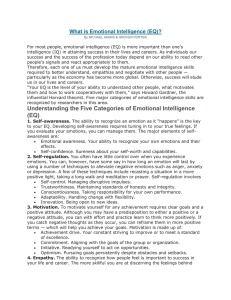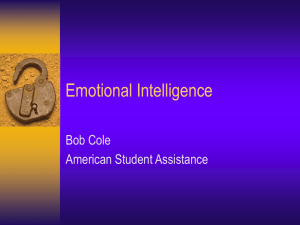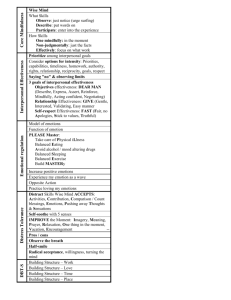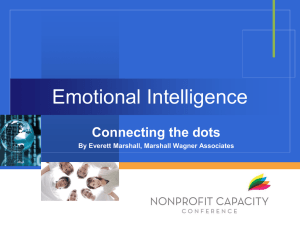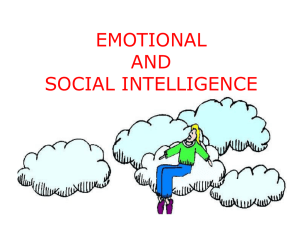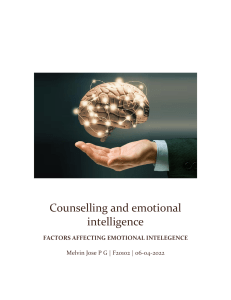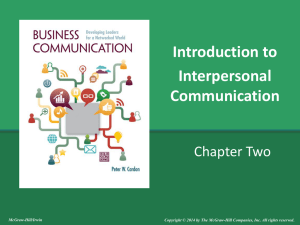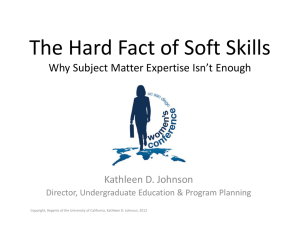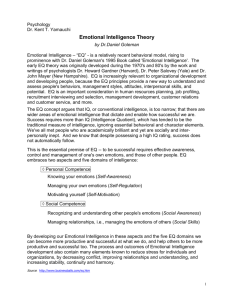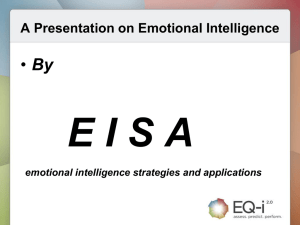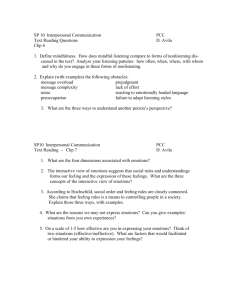Self - Expression
advertisement
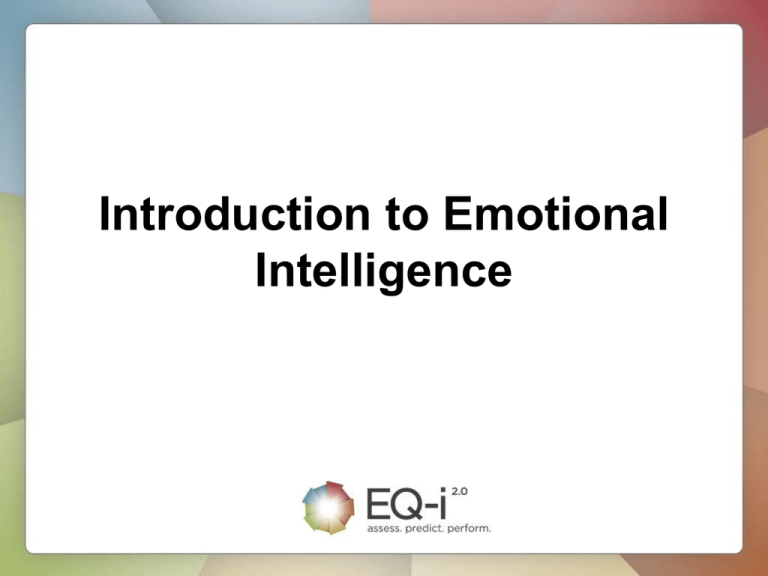
Introduction to Emotional Intelligence What is Emotional Intelligence? Emotional intelligence is a set of emotional and social skills that collectively establish how well we: • • • • Perceive and express ourselves Develop and maintain social relationships Cope with challenges Use emotional information in an effective and meaningful way It is a predictor of success in life and work What is the EQ-i2.0? • A way to accurately assess strengths and blind spots: take the assessment in less than 20 minutes • A predictable way to measures current level of emotional and social functioning: receive feedback on your results • A vehicle for developing effectiveness in order to improve performance: develop a customized action plan in order to ensure you are focusing on the right development needs How Accurate is it? • Great amount of rigor went into the research and development of the tool • 4,000 people took the assessment in order to ensure results are accurate: you are compared to your norm group • Checks and balances built into the tool to ensure the most accurate results The EQ-i2.0 Model What Does it Measure? The EQ-i2.0 measures five distinct aspects of emotional and social functioning: • Self-Perception – understanding your emotions • Self-Expression – expressing your emotions • Interpersonal – develop and maintain relationships • Decision Making – use emotions to make better decisions • Stress Management – cope with challenges Self-Perception Consists of the following sub-categories: • Self-Regard – confidence • Self-Actualization – continuous development • Emotional Self-Awareness – understanding my emotions Self - Expression Consists of the following: • Emotional Expression – saying how you feel • Assertiveness – standing up for yourself effectively • Independence – standing on your own two feet Interpersonal Consists of the following: • Interpersonal Relationships – developing and maintaining good relationships • Empathy – recognizing and appreciating how others feel • Social Responsibility – contributing to society Decision Making Consists of the following: • Problem Solving – effectively managing emotions when solving problems • Reality Testing – seeing things as they really are • Impulse Control – ability to resist or delay impulses Stress Management Consists of the following: • Flexibility – adapting to change effectively • Stress Tolerance – successfully coping with stressful situations • Optimism – having a positive outlook Happiness • • • • Feeling satisfied, enjoying life An indicator of overall well-being Not included in overall EQ-i2.0 results Impacts overall EQ-i2.0, closely linked to: – Self-Regard – Optimism – Interpersonal Relationships – Self-Actualization Results • You get an overall EQ-i2.0 result, as well as individual results for each component • You will receive feedback on your results and what they mean • Your report includes strategies to further develop your emotional intelligence and a development plan template to help you make your commitment real • Improving your Emotional Intelligence will not only help you be more successful at work, but outside of work too! Applying EQ-i2.0 There are many ways the EQ-i2.0 can be used: • Selection • Self-Awareness • Succession Planning • Leadership Development • Executive Coaching • Team Effectiveness Case Studies/ROI • Add some case studies to further build credibility in you and the assessment. Go to the portal and download the information that works best for you: – www.mhs.com/ei
